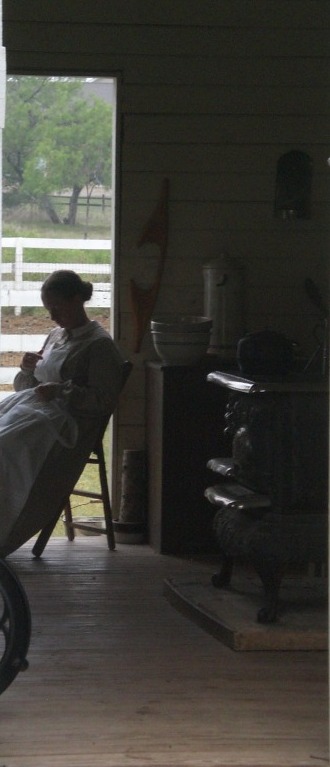|

Living History
is not acting. Actors and actresses learn and rehearse specific lines and have a limited and temporary interest in the period.
Those doing Living History must necessarily have a broader knowledge of the period, as they are subject to be asked anything
by the visitor.
You needn't know everything. Though the more you know about the life of the period the better
off you'll be, the person you are portraying wouldn't have known everything. Don't hesitate to claim ignorance
on any appropriate subject. That can also communicate an accurate bit of the past. When you do impart information, make sure
it's accurate.
Determine who you are and your relationship with the visitor. You can't explain your special
perspective on life if you don't have one. Determine who you are. This includes social class, occupation, education and
many other variables.
Be yourself. Even though you will be portraying a different person in a different time,
don't attempt, at least in the beginning, to adopt a character so radically different from your own that you can't
relate to or sympathize with it. Keep your own personality and adopt new social attitudes, dress, aesthetics and appropriate
knowledge of the world around you. Many who try to change too radically come across as either to "stagey" and false,
or they are so uncomfortable they simply can't function at all.
Try to avoid static situations. Stroll, carve
wood, play cards, read period newspapers, etc.
Continually seek out new historical information to use in informal
conversation
Minor verbal slips by interpreters or modern comments made in passing by visitors can usually be
ignored and passed over in order to maintain a first-person conversation overall.
Take your historical characterization
seriously and live the part.
|

